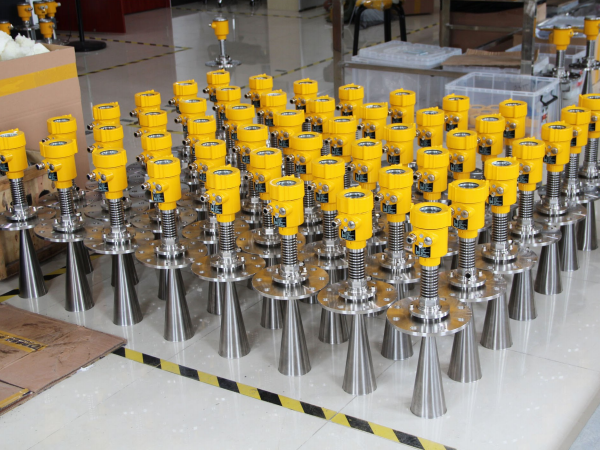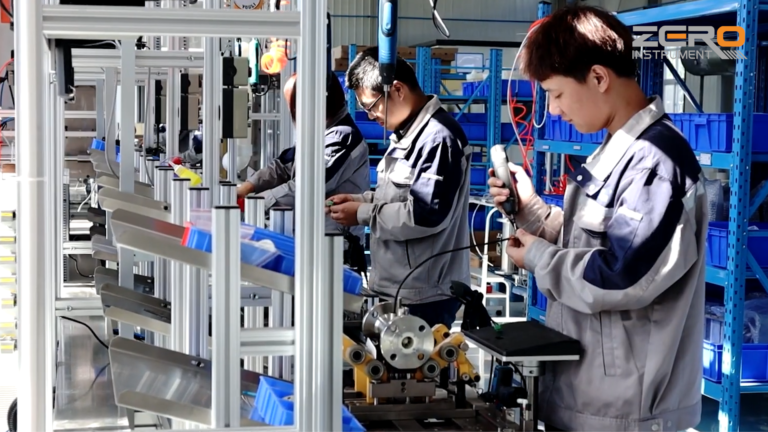A hydraulic oil tank is an important part of the hydraulic system, and accurate monitoring of the level is crucial for normal operation and maintenance.
However, due to the characteristics of hydraulic oil and the working conditions of the hydraulic system, there are some characteristics and difficulties in level measurement.
In this case, the radar level meter, as an efficient, accurate, and reliable measurement technology, is widely used for level measurement in hydraulic tanks.

The level measurement of the hydraulic tank has the following characteristics, the working stability and performance of the hydraulic system depends on the accurate level control of the hydraulic fluid.
Therefore, the level measurement of the hydraulic tank needs to be highly accurate to ensure the normal operation of the system. Level changes in a wide range: the inflow and outflow of hydraulic oil in the hydraulic system lead to rapid changes in level, so the level measurement of the hydraulic tank needs to adapt to a wide range of level changes.
Hydraulic oil has a high temperature, viscosity, and density, these characteristics may have an impact on the level measurement. At the same time, the poor transparency of the hydraulic oil may affect the accuracy of the optical transmission level measurement method.
Harsh operating environment: Hydraulic tanks are often installed in harsh industrial environments with vibration, high temperatures, humidity, and other factors, which may interfere with level measurement.

For the characteristics of hydraulic tank level measurement, there are several difficulties, Dip problem: The position of the level sensor in the hydraulic tank may be limited, resulting in the inability to completely submerge in the liquid. This may affect the accuracy of the measurement.
Vibration interference: Mechanical vibrations in the hydraulic system may interfere with the level measurement, leading to inaccurate measurement results.
Temperature changes: Temperature changes in a hydraulic system can affect the density and volume of the fluid, which can affect the accuracy of the level measurement.
Contamination and particulate matter: Particulate matter and contaminants are often present in hydraulic tanks, which may cause damage or interference to sensors or level measurement devices.
